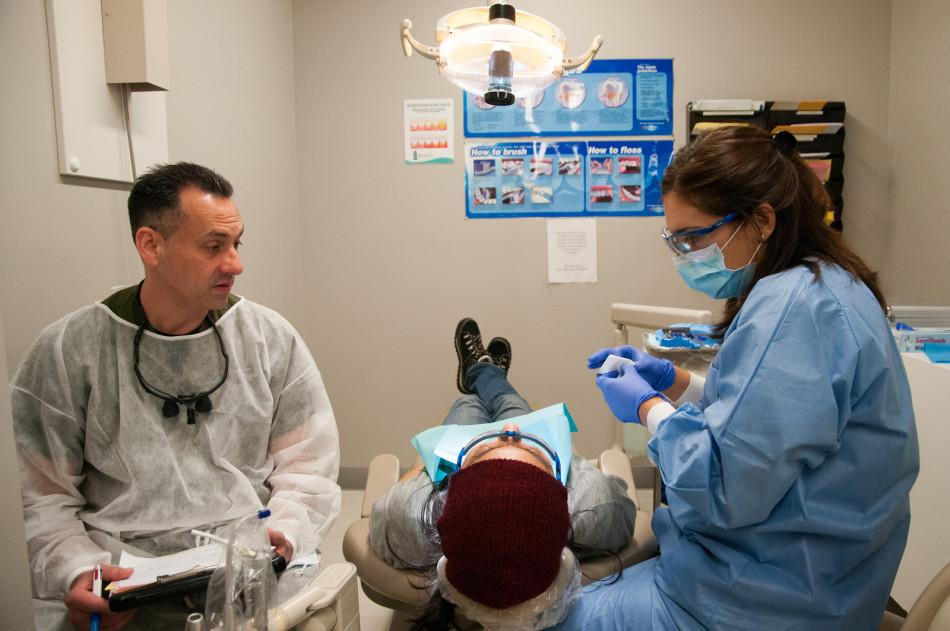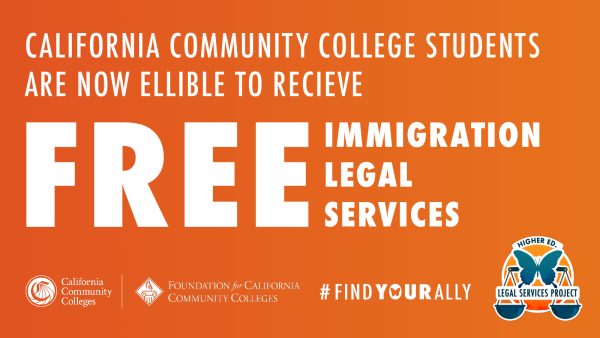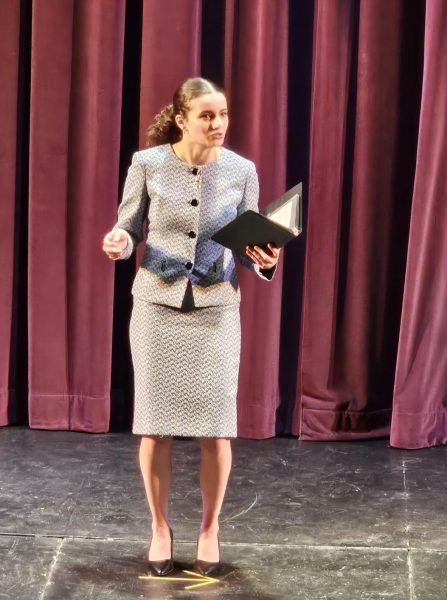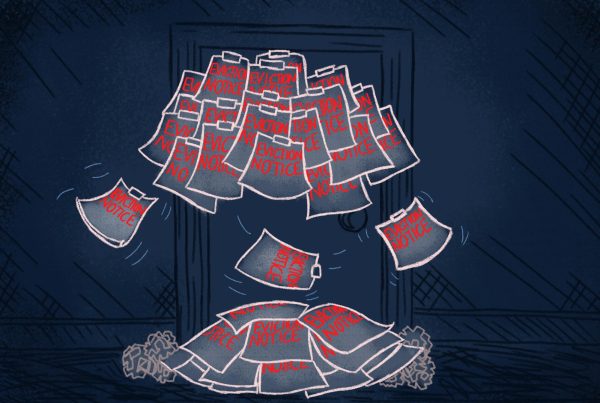Bachelor’s degrees could come to community colleges
Dental hygiene student Bryan Pepperell and Dr. Jill Owens examining student’s teeth during an initial exam before being accepted for teeth cleaning on March 4, 2014.
March 5, 2014
California legislators are preparing to draft a bill that would allow California community colleges to offer bachelor’s degrees for certain, high demand majors.
Legislation SB850 was brought up earlier this year in January, and if it passes community college students may be able to enroll in the program as early as fall 2015.
This is hardly a radical piece of reform, instead, it is part of a nationwide trend to include many high impacted vocational baccalaureate degrees. Currently, 21 other states offer limited bachelor’s programs at community colleges.
Tish Young, the dean of the biological and health sciences department feels that although DVC may not be participating in this program yet, it’s dental hygiene department is more than ready to accommodate a bachelor’s program.
“We definitely have the clinic, [however] we may need to hire more faculty and look for more resources…,” she said. “[Dental hygiene is] a major intensive program and students already take a huge number of units in their major.”
Students in this department feel DVC is more than ready for an opportunity like this.
Kyle Trettenero, a 24-year-old dental hygiene major, is in favor of this bill.
“With all the faculty we have and the new clinic we use… I think DVC is ready for this,” he said.
Karly Wright, 23, reiterated that need.
“I think with the amount of classes we take, we should have that,” she said.
Another dental hygiene major Michael Vu, 23, believes that students like him are ready for the next step, given the work load they are undertaking.
“What we are doing already is pretty high in standards,” Vu said.
Young shares the same sentiment as many other students in this department, saying, “this would [be] giving students credit for what they deserve. They are doing bachelor’s level work and only getting an associate’s.”
Traditionally, California’s Board of Education has limited community colleges to provide only associate degrees and transferring students to state universities. But with recent tuition costs going skyward, this may become an increasingly prevalent trend in California’s educational system.
Other states have attempted this program with varying levels of success.
Washington, for example offers a limited, though diverse, selection of bachelor’s degrees in technology, health sciences and applied accounting. The cost per unit for upper division courses is significantly cheaper at Washington community colleges costing $224 per credit compared to an average of $570 per credit for the price of tuition at their state colleges.
DVC will offer a path to transfer their dental hygiene students to CSU East Bay to finish their bachelor’s training that launches this summer.
Los Medanos College and Contra Costa College are in a similar situation with their nursing programs, which are highly impacted at every CSU. Offering upper division classes in a discipline such as this would relieve pressure off universities and make getting into them less competitive.
Maitreyee Chandra, a faculty member in the biological and health sciences department, believes this is a practical alternative to the costs that comes with a four-year college.
“Community colleges are more geared to lower and middle income students, and with high tuition at state universities, [bachelor’s degrees] will help all students from all socioeconomic levels and promote their learning,” she said.

















































































